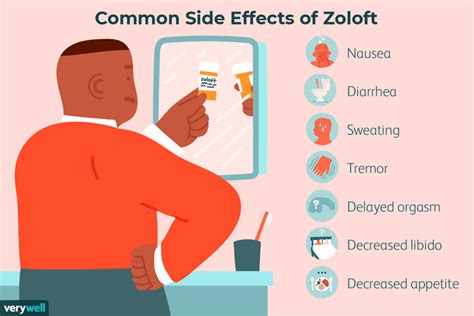How Long Does It Take for Zoloft to Work? A Comprehensive Guide
It's a common question for those starting Zoloft (sertraline): how long until I feel better? The truth is, there's no single answer. The timeline for Zoloft to become effective varies significantly from person to person. This comprehensive guide will explore the factors influencing this timeframe and what you can expect during the process.
Understanding the Zoloft Timeline
While you might experience some initial changes sooner, the full therapeutic effects of Zoloft usually aren't felt for several weeks. This isn't because the medication isn't working; it takes time for the medication to build up to a therapeutic level in your system and for your brain chemistry to adjust.
Key Timeframes:
-
First Week: You might experience mild side effects like nausea, drowsiness, or headaches. It's unlikely you'll notice significant improvement in your mood or anxiety symptoms this early.
-
Weeks 2-4: This is often when people start to notice a gradual improvement in their symptoms. This might be a subtle shift, rather than a dramatic change. Be patient; consistency is key.
-
Weeks 4-8: Many individuals experience the most significant symptom relief within this timeframe. However, it's crucial to remember this is an average; some might need longer.
-
Beyond 8 Weeks: If you haven't experienced substantial improvement after eight weeks, it's vital to discuss this with your doctor. They might adjust your dosage or consider alternative treatment options.
Factors Influencing Zoloft's Onset of Action:
Several factors can influence how quickly Zoloft works for you:
-
Dosage: Your prescribed dosage plays a crucial role. Higher dosages may lead to quicker symptom relief, but they also increase the risk of side effects.
-
Individual Metabolism: How your body processes medication is unique. Some individuals metabolize Zoloft faster than others, impacting the time it takes to reach therapeutic levels.
-
Severity of Symptoms: Individuals with more severe symptoms may require a longer time to see noticeable improvements compared to those with milder symptoms.
-
Other Medications: Interactions with other medications you might be taking can affect Zoloft's effectiveness and timeline.
-
Underlying Conditions: Pre-existing medical conditions can impact the medication's efficacy.
-
Patient Adherence: Consistently taking your medication as prescribed is crucial. Missing doses can delay the onset of benefits.
What to Expect While Waiting:
-
Side Effects: It's common to experience side effects in the initial weeks. These are often temporary and lessen over time. Report any concerning side effects to your doctor.
-
Gradual Improvement: Don't anticipate an overnight transformation. The improvement is usually gradual and cumulative.
-
Consistency is Key: Continue taking Zoloft as prescribed, even if you don't see immediate results.
-
Open Communication: Maintain open and honest communication with your doctor about your progress and any concerns.
When to Contact Your Doctor
If after 8 weeks of consistent Zoloft use, you see little to no improvement in your symptoms, contact your doctor. They may adjust your dosage, suggest alternative treatments, or explore other underlying issues contributing to your condition.
Disclaimer: This information is for educational purposes only and does not constitute medical advice. Always consult your doctor or a qualified healthcare professional before starting any new medication, including Zoloft. They can help you understand the potential risks and benefits and determine the best course of treatment for your individual needs.
